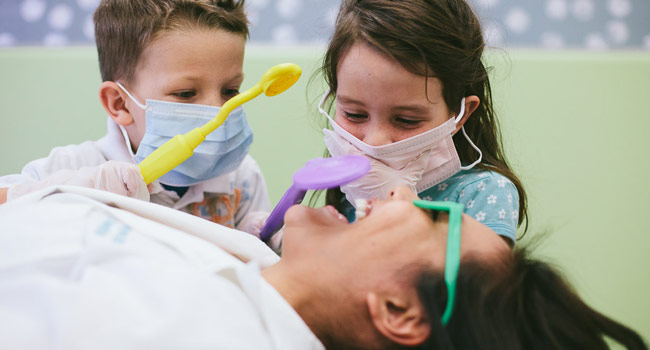
What is a Pediatric Dentist?
The pediatric dentist has an extra two to three years of specialized training after dental school, and is dedicated to the oral health of children from infancy through the teenage years. The very young, pre-teens, and teenagers all need different approaches in dealing with their behavior, guiding their dental growth and development, and helping them avoid future dental problems. The pediatric dentist is best qualified to meet these needs
Why are Primary Teeth so Important?
It is very important to maintain the health of the primary teeth or “baby teeth”. Neglected cavities can and frequently do lead to problems which affect developing permanent teeth. Primary teeth are important for (1) proper chewing and eating, (2) providing space for the permanent teeth and guiding them into the correct position, and (3) permitting normal development of the jaw bones and muscles. Primary teeth also affect the development of speech and add to an attractive appearance.
When Should My Child First See a Dentist?
Your Child’s First Dental Visit, Establishing a “Dental Home”
The American Academy of Pediatrics (AAP), the American Dental Association (ADA), and the American Academy of Pediatric Dentistry (AAPD) all recommend establishing a “Dental Home” for your child by one year of age. Children who have a dental home are more likely to receive appropriate preventive and routine oral health care, with a dental home your kids will get a early diagnosis if they need a wisdom teeth removal Boise. The Dental Home is intended to provide a place other than the Emergency Room for parents.
How Should I Prepare My Child For the First Dental Visit and Subsequent Dental Visits?
You can make the first visit to the dentist enjoyable and positive. If old enough, your child should be informed of the visit and told that the dentist and their staff will explain all procedures and answer any questions. The less to-do concerning the visit, the better.
It is best if you refrain from using words around your child that might cause unnecessary fear, such as needle, pull, drill or hurt. Pediatric dental offices make a practice of using words that convey the same message, but are pleasant and non-frightening to the child.


